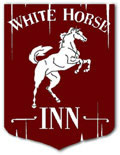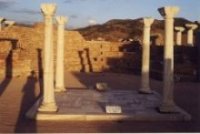 The Tenth in a Series of Sermons on John's Epistles
The Tenth in a Series of Sermons on John's Epistles
The Apostle John teaches by repetition. Throughout his first epistle, repeatedly, John has spoken of the way in which we can tell the differences between those who believe that Jesus is God manifest in the flesh, and those who do not. John has told us that Christians do not foolishly think that we are without sin, while those who have left the faith do mistakenly think they are without sin. Christians will strive to obey God’s commandments, while those taken in by false teachers are indifferent to the commandments of God. Christians will love their brothers and sisters in Christ, while those outside the church are not interested in demonstrating such love. Christians will strive to avoid worldliness (which is thinking and acting like a non-Christian), while those who have imbibed from the spirit of antichrist treat those who are faithful to the gospel just as Cain treated Abel. And Christians will love the truth, and willingly defend the doctrine that Jesus is God manifest in human flesh in the face of the many antichrists who will inevitably arise and seek to undermine the truth of our Lord’s incarnation. In the fifth chapter of 1 John, the apostle summarizes these familiar themes one final time, before concluding his epistle by returning to his testimony by which we know that Jesus is God manifest in the flesh.
As we continue our series on the epistles of John, we move into the fifth and closing chapter of 1 John–Lord willing, our topic in this sermon and the next. John will once again summarize his main points, before concluding this letter with a powerful assertion of the truth of the gospel, before asking that question which all of us must ask and answer at some point in our Christian lives–“how do we know that we know?” How do we know that Christianity is true? How do we know that our doctrine is correct? Why do we go to such great lengths and self-sacrifice and deny ourselves to live differently than those around us? Why do we drag our weary bones out of bed each Sunday to come to this place, listen to yet another sermon, and stand in line to receive a tiny piece of bread and receive a very small cup of cheap (and way too sweet) wine? How do we know that we know?
The answer to these questions is to be found in the nature of John’s own experience and life as an apostle. In chapter 20 of his gospel, John tells his reader that his purpose in composing that gospel is as follows. “Now Jesus did many other signs in the presence of the disciples, which are not written in this book; but these are written so that you may believe that Jesus is the Christ, the Son of God, and that by believing you may have life in his name” (John 20:30-31). John has composed his gospel precisely because he wants us to believe in Jesus Christ so that we will have eternal life. John is writing to convince us that Jesus is that one whom John (and the other apostles) claim that he is–God manifest in the flesh. According to John, our Lord’s entire messianic ministry bears witness to his identity as the Son of God. This is evident in Jesus’ teaching, through the fact that he is that one promised throughout the Old Testament, and through his miracles–done in the presence of those who means and motive to expose them if they these things were fake or nothing but magic. But the capstone of John’s case for Jesus is the fact that once crucified, God raised Jesus from the dead. And to all of this–that Jesus is God manifest in the flesh–John is witness.
To read the rest of this sermon, click here
 Sunday, January 24, 2010 at 02:29PM
Sunday, January 24, 2010 at 02:29PM 










